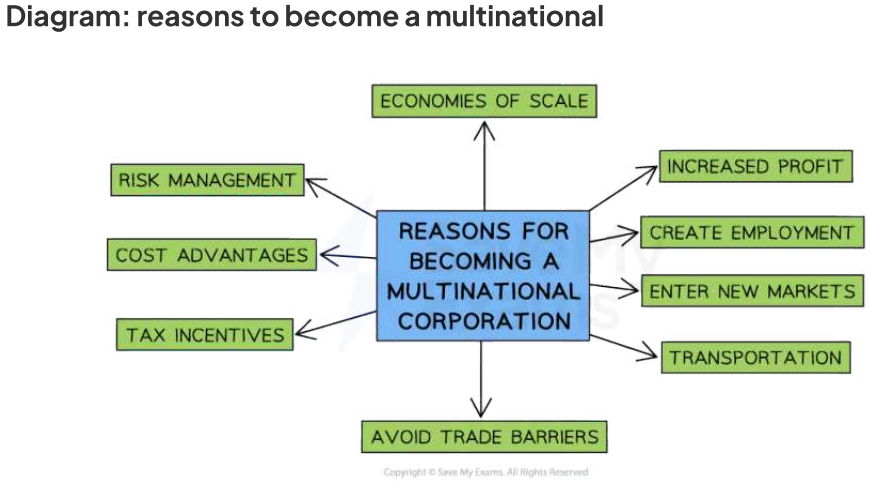1.6 multinational companies/corporations
1/10
There's no tags or description
Looks like no tags are added yet.
Name | Mastery | Learn | Test | Matching | Spaced | Call with Kai |
|---|
No analytics yet
Send a link to your students to track their progress
11 Terms
multinational company
business organisation that operates in multiple countries while having its headquarters in one country, like manufacturing in another country. Factors such as globalisation and deregulation have contributed to the growth of MNC’s
globalization
Globalisation is the economic integration of different countries through increasing freedoms in the cross-border movement of people, goods/services, technology and = nance making the world more interconnected.
This integration of global economies has impacted national cultures, spread ideas, speeded up industrialisation in developing nations and led to de-industrialisation in developed nations
impact of globalization
Globalisation has been increasing for thousands of years - it is not a new phenomenon Improvements in technology and the speed of global connections have exponentially increased the level of interdependence between nations in the past 50 years Consumers now source products globally recognising global brands wherever they trave
characteristics of globalization
Increasing foreign ownership of companies, increasing movement of labour & technology across borders, Free trade in goods/services , Easy ows of capital (nance) across borders
reasons to be multinational
As they operate globally, they are able to increase their output & benet from lowered costs created by economies of scale

protectionist policies(trade barriers)
tarrifs:
why
pros of MNC: creates jobs
thousands of
pros of MNCs: supporting local businesses
pros of MNC: Increase in tax revenue
cons of MNCs on host ocuntries:
job lossses as local firms may close if unabel to compete
repatriation of profits as earnigns are sent mack to MNCs country so it limit local benefit
vulnerability as MNCs may leave country for cheaper options